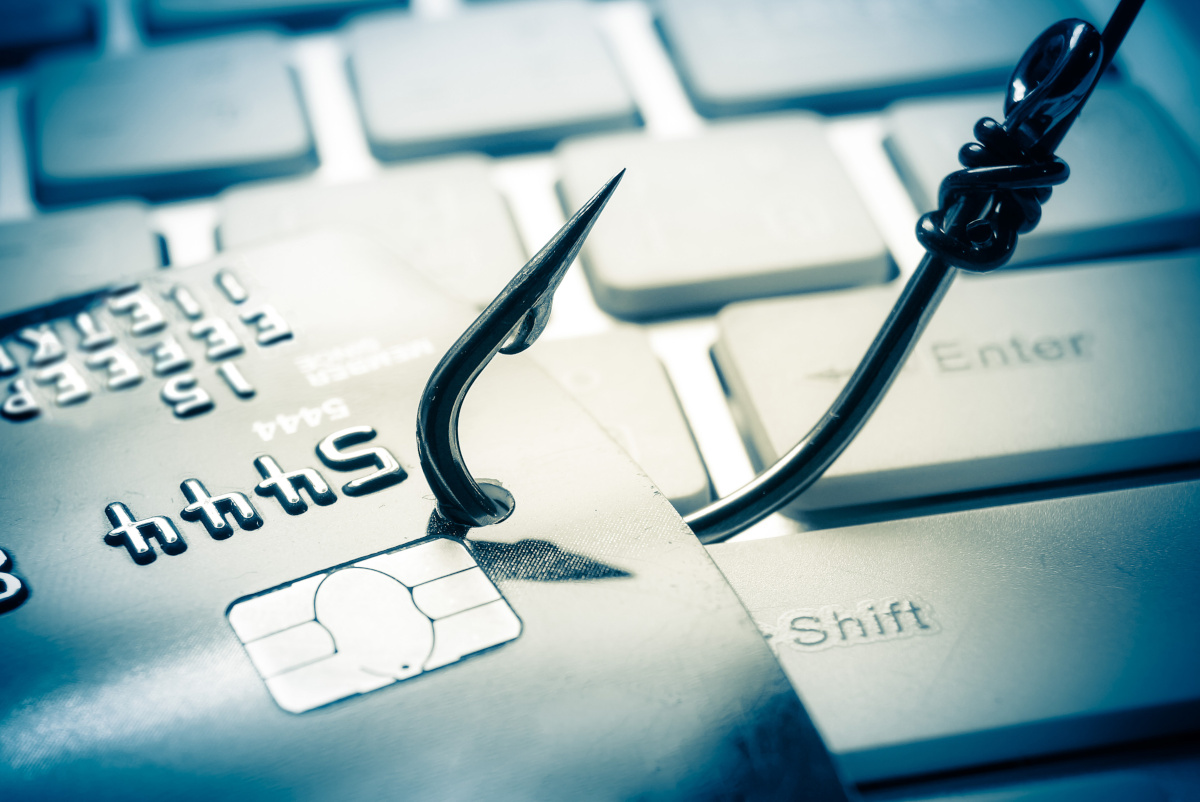How to Stay Protected from Phishing Scams
May 10th, 2023 by Roger Wentowski

Phishing scams are one of the most common forms of cybercrime today and can be incredibly damaging. The internet has opened up a whole new world for scammers to exploit unsuspecting victims by sending out fraudulent emails, texts, and other messages that appear to come from legitimate sources such as banks and other financial institutions. Unfortunately, these scams are becoming increasingly sophisticated and difficult to detect.
One of the main reasons why there is so much phishing activity today is because it is an easy way for hackers to make money. All that is required from them is a simple message or website disguised as being from a legitimate source in order to lure unsuspecting victims into revealing personal information such as banking details or credit card numbers. With this data, scammers can use it for their own financial gain by making fraudulent purchases online or selling the information on the dark web.
Another reason why phishing activity is so prevalent today is because of the way that people interact with online services and websites. Many modern websites have become increasingly complicated, which makes it easier for hackers to disguise malicious links or messages as being from a legitimate source. Furthermore, as more people use mobile devices to access internet services and websites, this leaves them even more vulnerable to these scams due to the lack of security features present in many mobile operating systems.
Finally, another major factor contributing to why there is so much phishing activity today is that cybercriminals are constantly adapting their techniques in order to stay ahead of modern security measures. By doing this, they are able to remain one step ahead of the game and continue to target unsuspecting victims with their malicious schemes.
Phishing scams remain a major problem in today's digital world due to the ease by which they can be carried out and the ability of hackers to continuously adapt their techniques. As such, individuals and organizations alike need to remain vigilant when online and take appropriate steps in order to protect themselves from becoming victims of these scams.
This includes having strong passwords, using two-factor authentication where possible, and not clicking on any suspicious links or messages that appear in emails or texts. Following these simple precautions can help safeguard against falling victim to phishing scams.
How to Stay Protected from Phishing Scams
Phishing scams are becoming increasingly common and sophisticated, so it is important to stay vigilant in order to protect yourself. You can take several steps to protect yourself from these online threats:
- Be wary of unsolicited emails or messages that appear suspicious - Even if they seem to have come from a legitimate source, look out for spelling and grammar mistakes, as well as any links or attachments that could be malicious.
- Never click on a link or download an attachment unless you know the sender and trust the content - If you're not sure, contact the sender directly via another method (e.g., telephone) to verify their legitimacy before proceeding with any action.
- Check for digital security certificates on any website where you plan to provide personal information (e.g., a bank or online store) - A secure website should have an "https" address and will display the name of the Certificate Authority in your browser window.
- Set up two-factor authentication whenever possible - That adds an extra layer of protection by requiring multiple pieces of information to log into an account. This can be easily enabled via most online service providers, such as banks and social media sites.
- Be aware of phishing attempts targeting mobile devices - These are becoming increasingly common due to their convenience and wide reach. Always double-check the source before opening any links or downloads sent via text messages or social media apps.
- Keep your computer and mobile devices up-to-date with the latest security patches - This helps protect them from malware, ransomware, and other malicious threats. Install a reliable antivirus program on all your devices and ensure it runs regularly scheduled scans.
By following these steps, you can reduce your risk of becoming a victim of phishing scams and enjoy safe online browsing experiences. With careful monitoring and precautions, you can stay safe.
Protect yourself from phishing scams by never clicking on suspicious links, not responding to emails from unknown senders, and always double-checking the URL of a website before entering your personal information. Additionally, be sure to regularly update your security software and enable two-factor authentication wherever possible.
By following these simple steps, you can help protect yourself from malicious attempts to steal your sensitive data. If you want to learn more about how to stay protected from phishing scams, contact us today.
Posted in: Cyber Security

